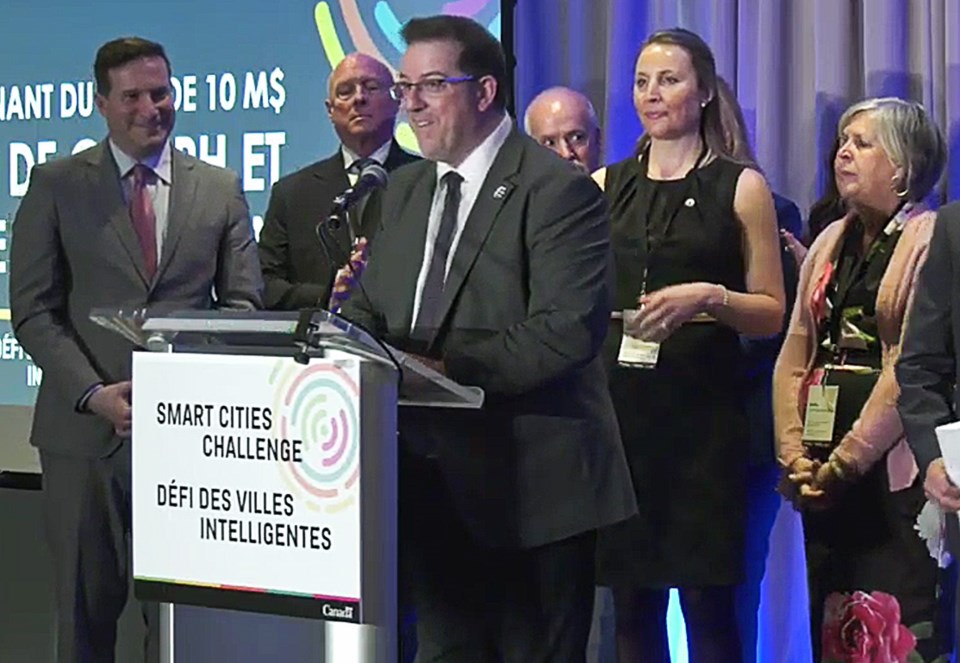OTTAWA - The Guelph-Wellington County idea of a circular food economy has won a $10 million prize in the federal government Smart Cities Challenge.
The local bid, titled Our Food Future, was named first place in its category Tuesday at an announcement in Ottawa Tuesday afternoon.
The winner was announced at a gala event by Minister of Infrastructure and Communities Francois Phillipe Champagne. Several city officials were on hand to accept the award, which was broadcast live on Youtube! and
The local entry was selected the winner from 10 entries in its population category of communities up to 500,000.
"Wow, this is awesome!" said mayor Cam Guthrie on the stage. "We're going to turn this vision into a reality. I can't imagine the legacy we're going to leave .... for the entire world when it comes to food."
Wellington County Warden Kelly Linton said the project "inspired our communities to be more creative and collaborative."
"This prize will have a huge, huge impact on our communities," Linton said.
There were 100 entries in the category and two winners chosen.
The Guelph-Wellington entry is a partnership with the University of Guelph, Conestoga College and dozens of other experts, entrepreneurs, innovators and community champions.
The Canada-wide challenge encouraged communities to improve quality of life through a smart cities approach which involves innovation, data and connected technology.
Guelph’s bid was titled Our Food Future and was aimed at creating a local circular food economy with three goals:
-
50 per cent increase in access to affordable, nutritious food;
-
50 new circular food business and collaboration opportunities; and
-
50 per cent increase in economic revenues by reducing or transforming food waste.
The winning bid identifies nine priorities the community will tackle to move the work forward:
-
Asset and behaviour mapping, a data analysis project to understand current food assets and gaps in local communities;
-
Work with local agencies and groups to develop a Food Security & Health Action Plan;
-
Launch a Circular Food Economy Lab to nurture ideas that will reinvent food systems and solve food problems;
-
Establish an Impact Fund to support innovative ideas that address food issues;
-
Leverage community experts and educators to provide public learning labs, food innovation education and training;
-
Provide business tools and services to help food and beverage organizations and businesses increase efficiencies and minimize food waste;
-
Continue a public awareness campaign to educate Guelph-Wellington residents on the food industry, the real cost of food waste and a circular food economy;
-
Explore adding a “social currency” to current carbon credit sales that could be used to support a green local economy;
-
Use data collected from Guelph’s technology-enabled residential waste carts to determine how food byproducts can be better used.
